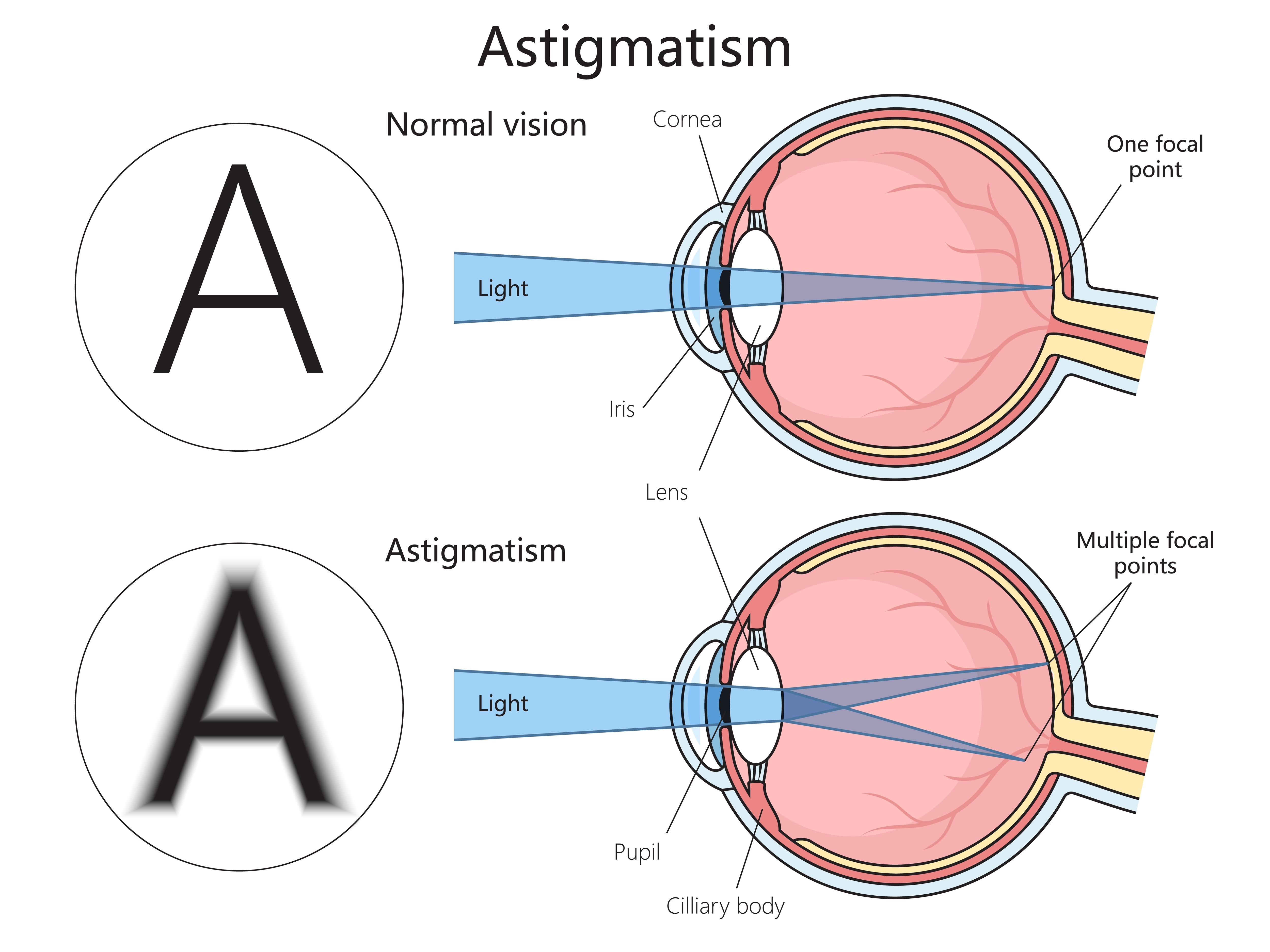
Astigmatism is a common vision condition that can cause blurry or distorted vision, yet many people don’t fully understand what it means or how it affects their eyesight. The good news is that with the right diagnosis and treatment, astigmatism can be managed easily, helping you see the world with clarity.
What Is Astigmatism?
In a healthy eye, the cornea (the clear front surface of the eye) is shaped more like a perfect sphere, allowing light to focus evenly onto the retina. With astigmatism, the cornea or lens has an irregular curvature - more like a football than a basketball. This uneven shape prevents light from focusing properly, resulting in blurred or distorted vision at all distances. Astigmatism can occur on its own or in combination with other refractive errors like nearsightedness (myopia) or farsightedness (hyperopia).
Common Symptoms of Astigmatism
Astigmatism symptoms can vary from person to person, but some of the most common include:
Blurry or distorted vision
Difficulty seeing clearly at night
Eye strain or discomfort
Frequent headaches
Squinting to see more clearly
If you experience these symptoms, it’s important to schedule a comprehensive eye exam to determine whether astigmatism is the cause.
How We Can Help
Our optometrist can diagnose astigmatism through a comprehensive eye exam that may include several specialized tests. One of these is visual acuity testing, which measures how clearly you can see letters or symbols at different distances. Another is keratometry, a technique used to measure the curvature of your cornea and detect any irregularities in its shape. Additionally, refraction testing is performed to determine the precise lens prescription needed to bring your vision into sharp focus.
Once diagnosed, astigmatism can be managed effectively with a variety of treatment options. Eyeglasses are a common solution, using specially designed lenses to correct the uneven curvature of the cornea and help light focus properly on the retina.
Contact lenses (specifically toric lenses) are another excellent option, providing crisp, clear vision without the need for glasses. For those with higher or irregular astigmatism, specialty contact lenses such as scleral lenses can offer both improved vision and enhanced comfort. In some cases, refractive surgery such as LASIK may be recommended to provide long-term vision correction.
Find Out If Astigmatism Is Affecting You
Astigmatism is a common and treatable condition that can affect anyone, regardless of age. With a comprehensive eye exam and personalized care from your optometrist, you can achieve clear, comfortable vision.
Schedule your comprehensive eye exam at Hunter Family Vision to find out if astigmatism is affecting your vision, and discover the best treatment options to help you see clearly. Visit our office in Louisburg, Kansas, or call (913) 837-3636 to book an appointment today.











